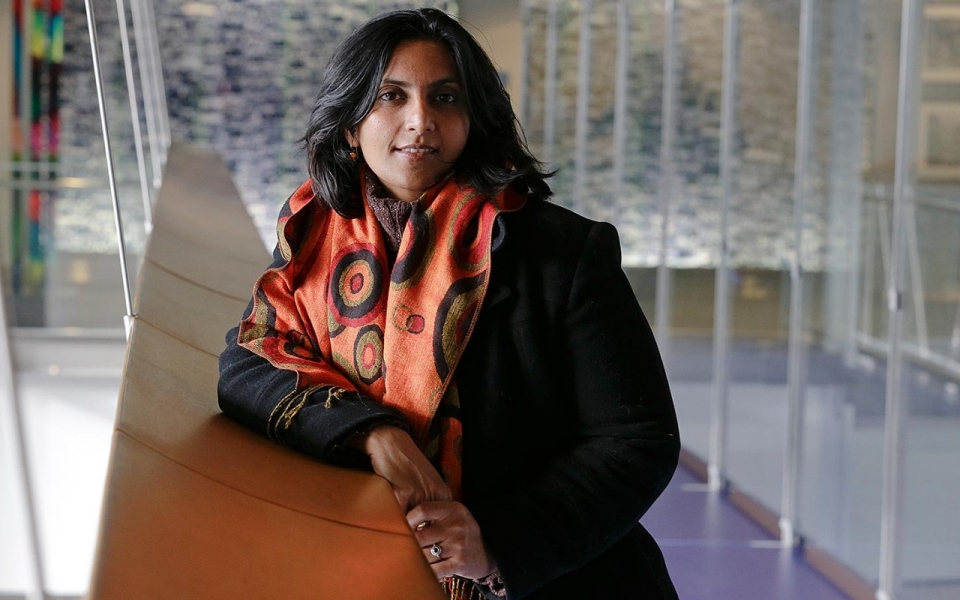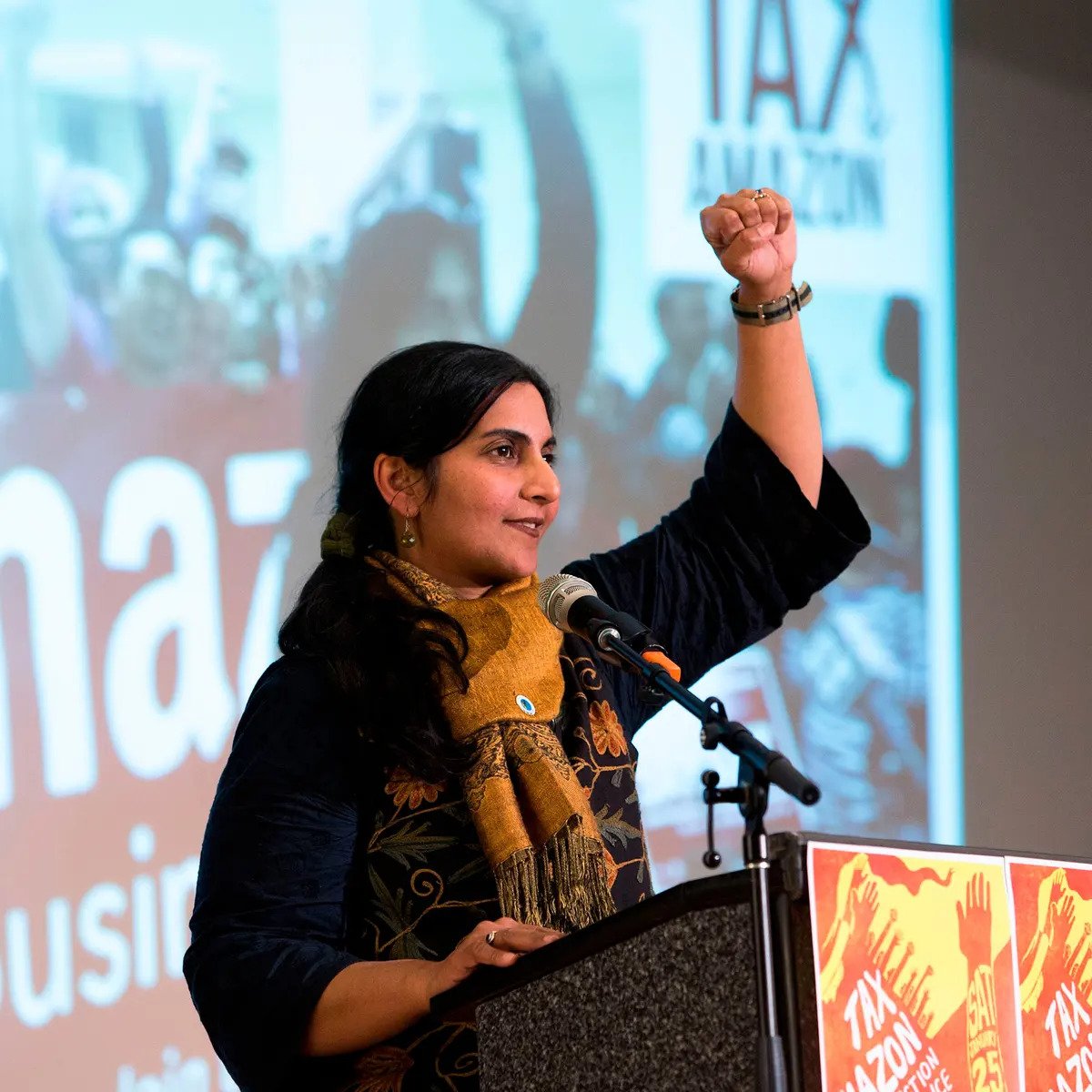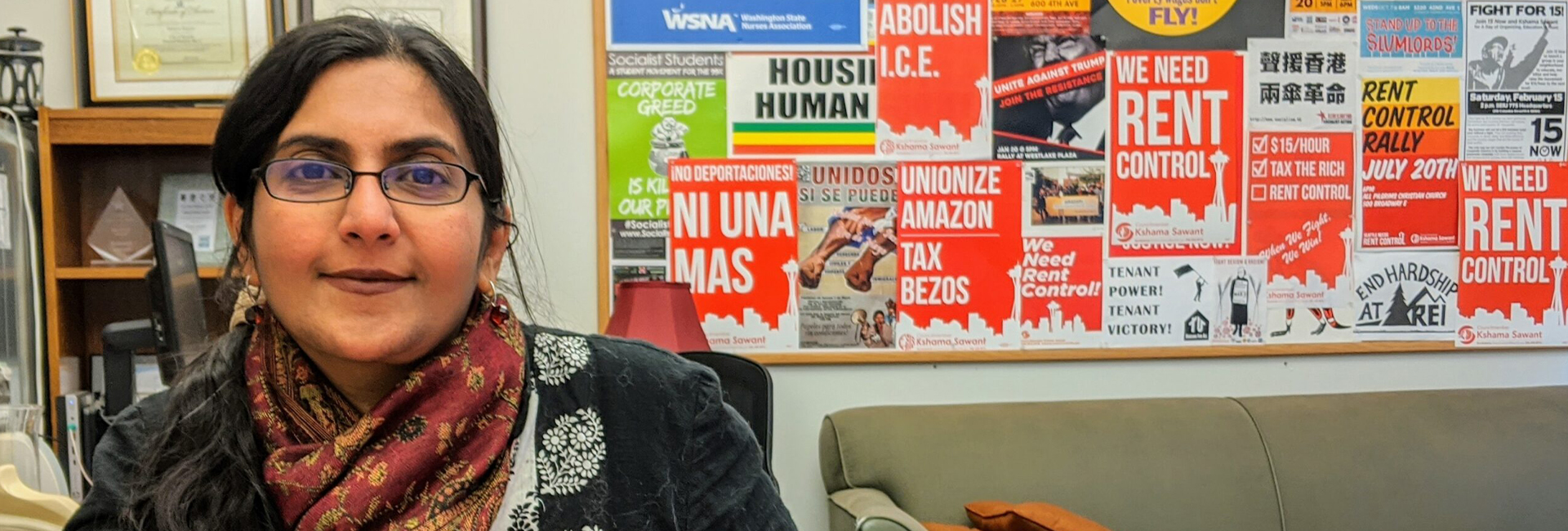(March 28, 2023) Just a few months into her third term as the only Indian American politician on the Seattle city council, Pune-born Kshama Sawant proposed a new tax regime against the corporate giants in the area. She knew that the fight would be long, with most people showing no confidence in her idea. Despite much resistance from the opposition and a months-long battle, the Indian-American politician was able to triumph over tech biggies, including Jeff Bezos, in their own backyard.
And now – about two years after her victory over Amazon – the politician is in news again, and this time with yet another long-awaited reform. Written and piloted by Kshama, the Seattle city council introduced an ordinance to ban any kind of discrimination based on caste in the city – making Seattle the first city in the United States of America to o add caste to the list of anti-discrimination laws. “Caste discrimination is faced by South Asian American and other immigrant working people in their workplaces, including in the tech sector, in Seattle and cities around the country,” the politician said after the law was passed by the council, adding, “We still have a long way to go.”

Known as one of the boldest US politicians, Kshama has been at the helm of several historic reforms and laws that are changing the socio-economic in Seattle – and by extension the whole US. A member of the Socialist Alternative, she was first elected in 2013 and had notable success in 2015 when she managed to get the basic wage increased to $15 an hour. “My first week in office, two veteran politicians came by to inform me they would not allow me to pass any legislation, much less the $15 minimum wage, and that city hall would continue to run “on their terms”. But they were unable to stop our movement. Six months later, our grassroots 15 Now campaign, working alongside labor unions and community activists, had won a groundbreaking minimum wage ordinance that made Seattle the first major city to pass $15. From here, minimum wage victories spread to more than a dozen cities and several states,” the Global Indian recalled during an interview.
A young girl with big dreams
Hailing from a middle-class Marathi family based in Pune, Kshama’s childhood was full of dreams of making a name for herself. A brilliant student, Kshama was equally talented in extracurricular activities, which won her several laurels. The dream, however, broke when her father passed away in a tragic accident when Kshama was just 13. “I grew up observing the consequences of the caste system and abject poverty — though I was part of a middle-class family from the Brahman caste. My earliest memory growing up in Mumbai was looking at the ocean of poverty and misery around me and seeing great wealth at the same time,” the politician said in an interview, adding, that this exposure shaped her views and eventual conversion to socialism.

After finishing her schooling in Pune, Kshama pursued a bachelor’s degree in computer science from the University of Mumbai and graduated in 1994. She soon married Vivek Sawant, a software engineer working for Microsoft, and moved to the United States. While she soon started working as a programmer, the discrimination faced by South Asians in the US motivated her to look into the problem. “Coming from India, what was striking is that you expect that in the wealthiest country in the history of humanity, there shouldn’t be any poverty; there shouldn’t be any homelessness… But when I came to the US I found it was exactly the opposite,” she said in an interview.
In 1996, the politician quit her job and enrolled in a Ph.D. programme in economics at North Carolina State University. Her dissertation was titled Elderly Labor Supply in a Rural, Less Developed Economy. The couple moved to Seattle in 2004, where Kshama taught at Seattle University and the University of Washington Tacoma for nearly a decade before venturing into politics.
Making of a politician
It was a cold day, when Kshama, who was on her way home from work, came across a pamphlet of the Socialist Alternative meeting. She decided to attend – it was an event that changed her life forever. Intrigued by their ideas and notions, the politician decided to join them. After running unsuccessfully for Position 1 in the 43rd district of the Washington House of Representatives, representing Seattle in 2012, Kshama decided to stand again in the mid-elections in 2013, and against everyone’s hope won the elections by 41 votes.
In 2014, the became the first socialist politician elected to the Seattle City Council in 100 years, and she campaigned on a platform that included rent control, a revenue-raising tax on millionaires, and a $15-an-hour minimum wage. In almost one decade-long journey, the politician has brought in several historic changes and reforms to uplift and empower the people of Seattle. And quite recently, she addressed the one issue that has been bothering her since she was a young kid in Pune – caste-based discrimination.
“It is not surprising that South Asian communities outside the US are not aware of the caste discrimination inside our country. But the reality is different. Since our victory, we got to know that caste discrimination is prevalent in other parts of the world as well. Wherever there is a significant concentration of South Asian immigrants, one can see the manifestation of caste discrimination. We’ve heard hundreds of gut-wrenching stories over the last few weeks showing us that caste discrimination is very real in Seattle. I couldn’t just keep quiet,” said the politician, who recently announced that she would retire from the city council at the end of the year, instead announcing that she would be launching Workers Strike Back, a national labour movement.
- Follow Kshama Sawant on Twitter



